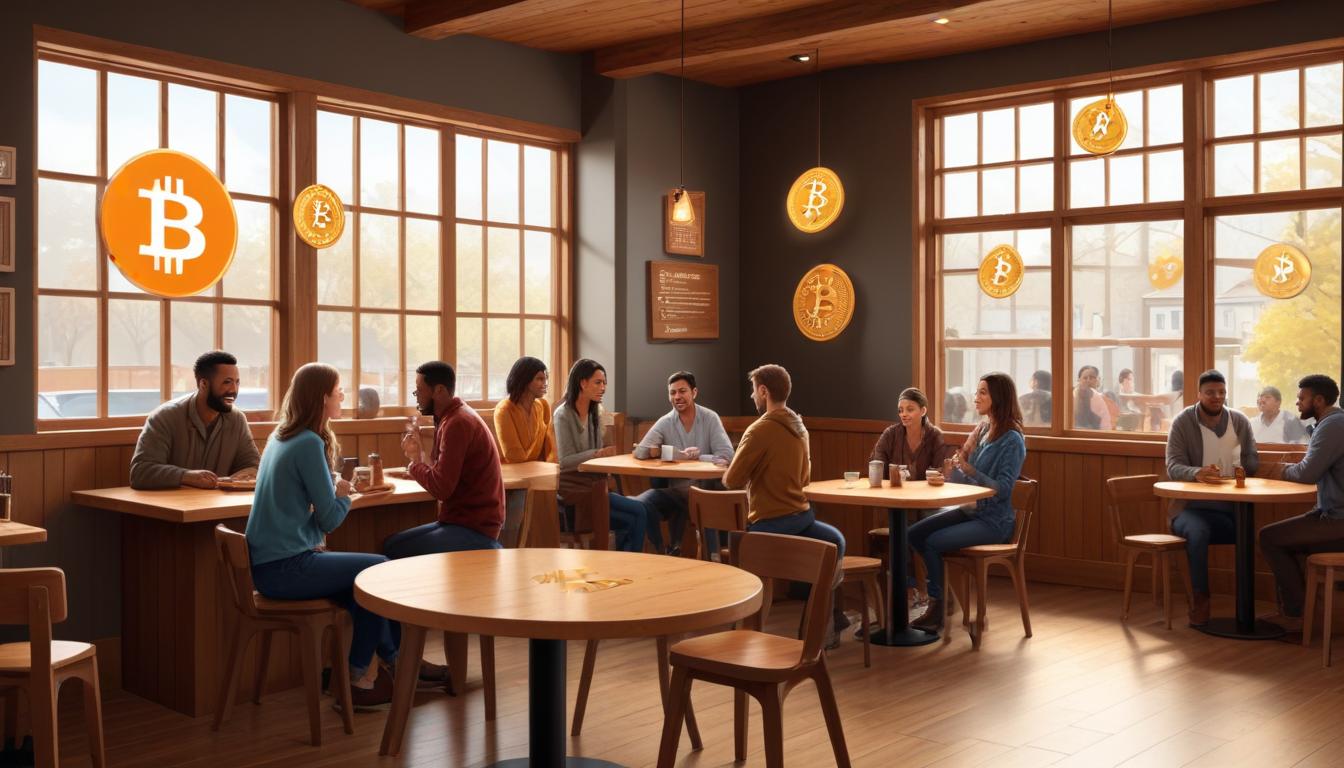The cryptocurrency revolution has spawned a remarkable phenomenon that extends far beyond digital transactions and blockchain technology – the emergence of vibrant, interconnected communities of Bitcoin enthusiasts who are increasingly bridging the gap between virtual and physical worlds. This transformation represents a significant evolution in how cryptocurrency adoption and culture manifest in everyday life, creating new social dynamics and reinforcing the foundational principles that drew many to Bitcoin in the first place.
The concept of Bitcoin meetups and community gatherings has become increasingly prevalent, reflecting a deeper understanding that while Bitcoin itself operates in the digital realm, its impact and importance are fundamentally human. These gatherings serve multiple purposes: knowledge sharing, network building, and perhaps most importantly, the reinforcement of shared values and beliefs that often extend beyond mere financial interests. The common thread of sovereignty, personal responsibility, and financial freedom tends to create instant connections among participants.
What’s particularly noteworthy is how Bitcoin communities often align with other interest groups focused on self-sufficiency, sustainable living, and local food systems. This intersection isn’t coincidental – it reflects a broader philosophical alignment with principles of decentralization, personal autonomy, and resistance to centralized control systems. The growing interest in local farming, raw milk cooperatives, and direct-to-consumer food networks often overlaps significantly with Bitcoin adoption patterns.
The technology sector has long recognized the value of in-person meetings for building stronger communities, but Bitcoin meetups take this concept further by combining technological innovation with practical lifestyle applications. These gatherings often feature discussions about both technical aspects of cryptocurrency and broader societal implications, creating a unique blend of theory and practice that helps accelerate adoption and understanding.
Real-world Bitcoin communities are increasingly focusing on practical applications and solutions, moving beyond theoretical discussions to actual implementation of Bitcoin-based systems in local economies. This includes everything from setting up Lightning Network nodes to establishing merchant adoption programs and creating local trading networks. These initiatives help demonstrate Bitcoin’s utility as both a store of value and a medium of exchange.
The emergence of Bitcoin-friendly businesses, particularly in the food and beverage sector, has created natural gathering points for community members. Coffee shops and restaurants that accept cryptocurrency payments often become hubs for impromptu meetings and planned gatherings, fostering organic growth of local Bitcoin ecosystems. These venues serve as practical demonstrations of cryptocurrency adoption while providing comfortable spaces for community building.
The intersection of Bitcoin communities with agricultural and sustainable living movements represents a particularly interesting development. Many Bitcoin advocates are increasingly interested in food sovereignty, regenerative agriculture, and local food systems, seeing these as natural extensions of the principles of decentralization and self-sovereignty that Bitcoin embodies. This has led to the creation of networks connecting Bitcoin users with local farmers and food producers.
Looking forward, these community-building efforts are likely to play an increasingly important role in Bitcoin’s broader adoption story. As more people seek to understand and engage with cryptocurrency, having strong local communities that can provide guidance, support, and practical experience becomes invaluable. These networks serve as crucial onboarding mechanisms for newcomers while strengthening the overall resilience of the Bitcoin ecosystem.
The future of Bitcoin adoption may well depend on these grassroots movements as much as on technological advancement or institutional adoption. The strength of local communities, their ability to demonstrate practical applications of Bitcoin, and their role in education and support will be crucial factors in expanding Bitcoin’s reach beyond the technically savvy early adopters to a broader mainstream audience.

